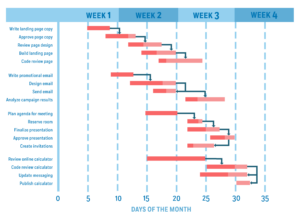One of our recent projects involved work to be done on a short, 3-month deadline. According to the project leadership, everything which denoted good project management practices had been performed.
The work was scoped, fine-tuned, and broken down into work packages. The work packages were then assigned resources and budget. Budgets and timeframes were confirmed with the actual performers of the work. Inspections and progress tracking were built into the schedule. Planning went on and on. By all counts, the project should have gone smoothly.
In hindsight, the first sign of trouble should have been the payments. The contractor performing the critical “Stage 1” in month 1, had agreed and signed a contract for milestone payment. Yet he approached management every week with reasons why he needed an advance, or needed management to cover certain expenses. As a sign of goodwill, and given the tight deadlines, management approved the payments. They figured these interim amounts would just be subtracted from the final milestone payment, so all would be well.
Soon, it was quite impossible to correlate invoices with actual progress achieved on the different work items. At the 1-month milestone review, the contractor said items were 90% complete, whereas the customer’s tester rated the progress as much lower.
Management became hugely concerned. Not only was the critical first stage not been finished in month 1, there was no agreement on how much work was actually completed. They decided it was best to pay the contractor for work performed and go with another, more experienced contractor for the remainder of Stage 1. So Management went back to the contract, to see what clause to invoke to terminate this sub-standard contractor.
To their great consternation, the agreement only included termination for breaching the contract, not “termination for convenience”. Otherwise, there was a clause for dispute resolution, which included an outside mediation group. A great battle ensued, where the contractor did not accept they were in breach of the contract. Their position was that they had had a few delays, but would remediate all incomplete items. If not allowed, they would sue Management for the entire value of the contract. The Management team found this stance unacceptable, and hired another contractor to finish Stage 1, since they had time pressures.
To this day, that contractor and that management team are mired in submitting paperwork to the dispute resolution mediators. The contractor claims he is owed the entire value of the contract. The management maintains that those interim payments made to the contractor are equivalent to the incomplete work in Stage 1, and not another cent will be forthcoming. So the inspections, submissions, and document reviews continue with the dispute resolution group.
In summary, include in your contractor agreements a clause on “termination for convenience”, whereby you can pay them for work performed up to a certain point, and then part ways without further explanation. A point may come in the project where you have to be able to -as they say in the performing arts- exit stage left ….
 Sections of this topic
Sections of this topic















